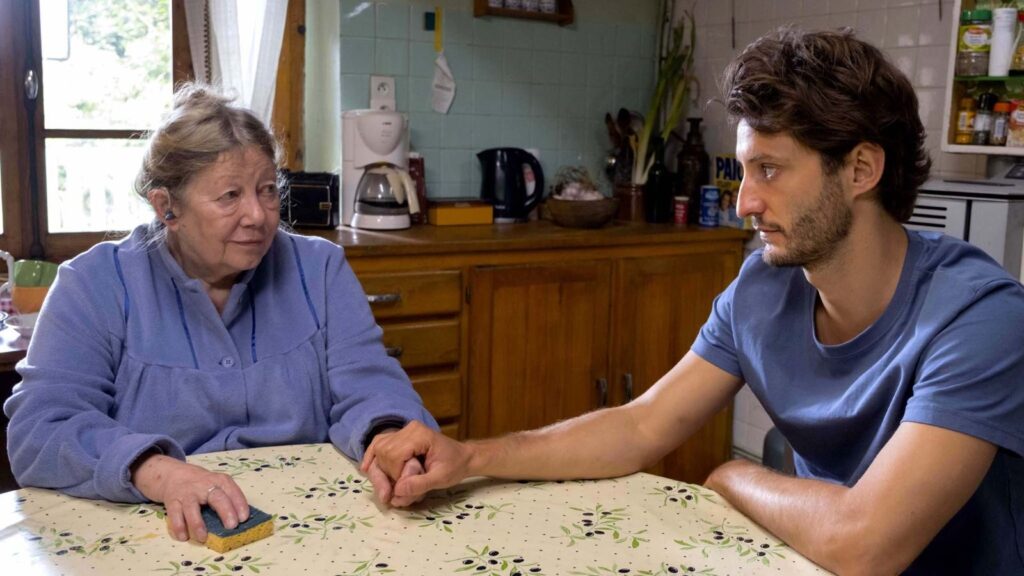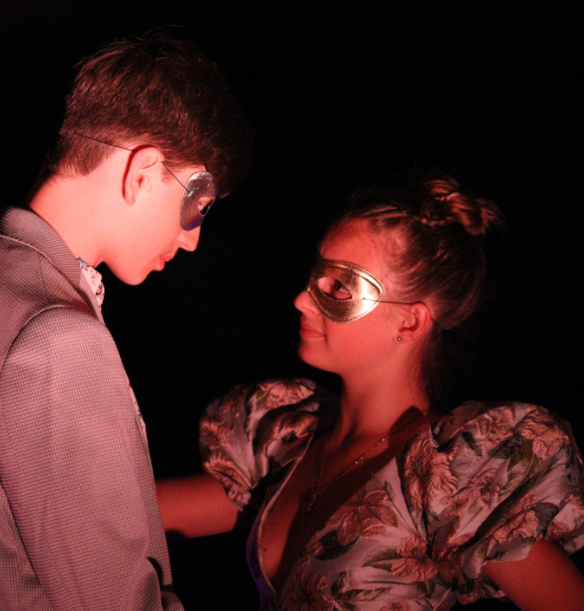
‘The Book of Solutions’ // Partizan Films
‘The Book of Solutions’ was charmless.
‘The Book of Solutions’ is a film of problems. The latest comedy by Michel Gondry (‘The Green Hornet’) is about the pain of making movies. Quite aptly, it is painfully unfunny. Gondry describes his work as a mix of “precision and chaos”. This film may be chaotic, but it is not precise.
The story is based on the director’s experience editing his 2013 film ‘Mood Indigo’. In his own words, this film is “about the adventures of a director who has too many ideas, and who refuses to see the editor of his movie. And how the people around him try to protect him, but also suffer from his presence.”
The director-protagonist, Marc (Pierre Niney), is a fictional version of his maker. Perhaps this is why Gondry seems reluctant to satirise him too much, but a good satire is what the character needs. Marc’s crew put up with his constant tantrums and violent outbursts. But there’s no reason why the audience needed to.
Gondry tries to paint Marc as a misunderstood genius. He isn’t. The humour (using the term loosely) comes from the idea that Marc is neither a genius nor misunderstood. The audience sees his delusions of grandeur and childish outbursts for what they are: the pathetic frustrations of a spoiled brat.
Gondry then performs a cynical sleight of hand when he ‘redeems’ Marc in the final act. And what’s his idea of redemption? A childish one, no less. He says “sorry”, and he’s allowed to play with the other kids again. What is he saying? That if someone is creative enough, anything short of murder is excusable?
Nearly every adjective that could be use to describe Marc’s directing style could also be applied to Gondry. Both are indulgent, arrogant, and irritating. It may be an accurate self-portrait, but why bother? What purpose does that irritation serve, except that it’s…well, very irritating.
The story also lacks momentum. It’s essentially a series of sketches bound by a cliché plot. Most of the gags aren’t visual- it’s all dialogue, and not good dialogue either. It’s the kind of stuff heard on a Seinfeld-esque sitcom; meaninglessly cynical and loaded with pop culture references too obscure for most audiences.
The sitcom vibe is furthered by the celebrity cameo of Sting, which functioned in the same way as a guest appearance on Friends. It’s a desperate attempt to hold the audience’s attention when the story sags. A cameo of this sort isn’t needed in a good film.
The visuals are equally dull. The imagery is strangely neglected for such an aesthetically acclaimed director. Cinematographer Laurent Brunet’s handheld camerawork also didn’t help things. Some filmmakers feel a handheld camera automatically makes a movie ‘more real’. But if there is no purpose, there is no point.
The performances are all similarly average. This is a case of actors trying to squeeze juice from a dead lemon. Blanche Gardin and Frankie Wallach are adequate in their respective roles as the Editor and the Assistant, but perhaps the best performance comes from Françoise Lebrun. She plays Marc’s elderly aunt and is very funny.
What isn’t funny are the later scenes, where Gondry flirts with controversy but is too shy to ask it out. Some scenes promise (or threaten) incest and murder, but neither eventuates. It’s a cheap move to head towards a destination the writer never intended to arrive at. Gondry may be a hack, but he’s not a very committed one.
Despite appearances, ‘The Book of Solutions” isn’t a satire, but a story of an eccentric artist who finds success and love. In other words, it’s a fairytale, minus the magic and the charm. The Marc/Gondry character can’t seem to watch his own movie. But who can blame him?
‘The Book of Solutions’ is coming soon to Australian cinemas. For more information visit the official website.






